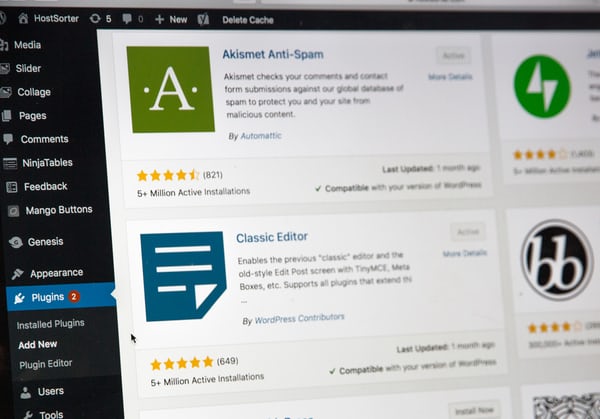top 10 ways to improve website speed_
We all know by now that speed matters. Google’s PageRank algorithm takes into account web page loading times. It’s crucial that your website speed is optimised to ensure it’s not slipping down the ranks. In addition, a slow website can further impact a business by reduced web traffic, fewer conversions, and even create a negative customer experience. Google favours fast websites. First of all, check your speed site with Google’s PageSpeed Insights then follow some of our tips below to improve your website speed and make adjustments where possible.
What are the top ten ways to improve website speed and how?

1. Optimise images
Image size is one of the main causes for a web page to load slowly as they are responsible for extra load on the server. However, for a successful e-commerce site, high quality product images are necessary for the consumer to make the all important purchase. With a plug in such as WP SMush.it for wordpress sites, images can be compressed without losing the quality.
2. Minify HTML, CSS and Javascript
HTML, CSS and Javascript files account for the white spaces on your website but can account for excess codes, all taking up space and slowing down the page. By combining all Javascript files for example, this will streamline the page and minifying a file will remove unnecessary whitespace and bulky code, all helping the page to load quicker. The fewer HTML requests, the faster the page will load. Two plugins that can do all of this for you is WP Minify and WP Rocket.

3. Enable Browser Caching
Enabling cache means that repeat visitors to your website will experience a much faster upload time enhancing their user experience.W3 Total Cache is the plugin you need for this. It is a quick and effective way to increase your page load speed and optimise its performance and you should notice an immediate improvement.
4. Use a CDN (Content Delivery Network)
One of the best ways to improve speed is to use a content delivery service, meaning that your files are hosted on a network of servers, rather than just relying on one main server that can cause issues and decrease in speed at high traffic times. Take a look at Amazon Web Services (AWS) to get a CDN in place.
5. Check your hosting
You need premium web hosting to ensure that your page speeds are up there with your competitors. Hosting options and prices can vary but don’t just go for the cheapest as you would probably need to upgrade it at some point. AWS and WP Engine are two of the best hosting providers to consider.
6. Reduce your redirects
Try to only include minimal redirects on your page and only the ones that are absolutely necessary. A high number of redirects can have a negative impact on page speed as the users browser takes time to reach the new page indirectly. If you do need to use redirects, try to ensure they are 301 or 302 server side redirects as this are the fastest type. Screaming Frog can help identify all the redirects currently on your site.
7. Remove unnecessary plugins
While plug ins have their own individual uses, avoid excess and unnecessary plugins as they only contribute to slower page load speed and can occasionally cause technical problems. To reduce excess load on your website, ensure your regularly test and review your plug ins and remove any that you are no longer using.
8. Update your theme

If your website is built with WordPress then make sure the theme takes into account speed. With so many amazing features, a heavy theme can dramatically reduce page load times. Sometimes it can be best to keep the theme simple in order to optimise speed. In addition, make sure you are up to date with the latest version of the theme. Avada is one of the fastest and best selling wordpress themes available today.
9. Enable compression
By compressing your website files, you will have faster page load times. This can be done super easily with Gzip. By compressing your files with gzip this can reduce download times by a huge 70% making a massive difference to the user experience.
10. Fix any broken links
Broken links are a sure fire way to drive users away from your site. They affect your user experience and SEO ranking therefore, checking for any broken links should be done on a regular basis. As you may expect there are a number of tools that can check and repair your links for you. You can try broken link checker.
If this all seems a bit too much and you are not quite sure where to start, then leave it to our team of experts. We can speed test your website and quickly make some super effective improvements, leaving you to concentrate on running your business knowing that your website is literally up to speed!
